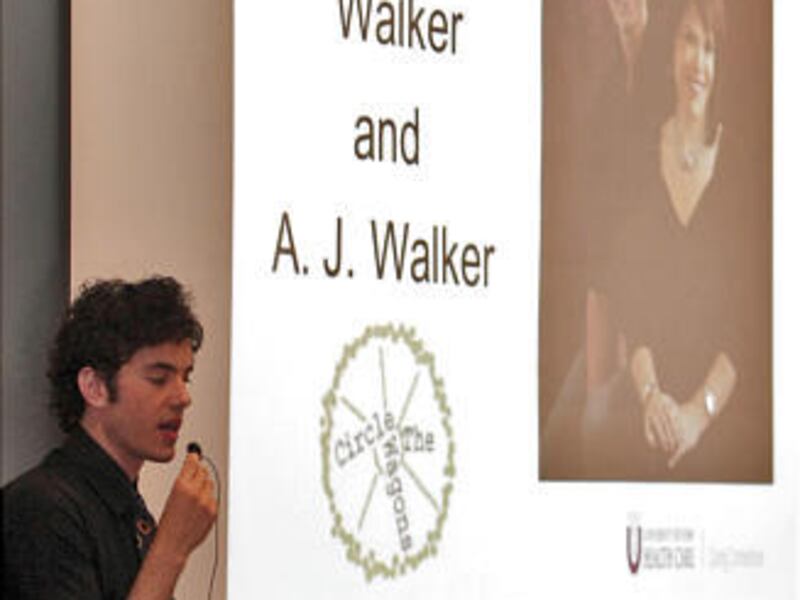SALT LAKE CITY — Vickie Walker looked over at her husband's side of the bed and saw it was perfect.
The pillows were untouched and blankets exactly in place the morning of Feb. 13, 2007, the day after her husband, Jeff, had been killed by a lone gunman at Trolley Square.
She went to the hospital where her now 19-year-old son, A.J., lay in a hospital bed recovering from surgery. Physicians had removed several shotgun pellets from his head, and they weren't sure he would survive.
"I have tears today because I'm grateful I didn't have to bury two people then," Vickie Walker said to a room full of similarly grieving people Tuesday night during a presentation, hosted by the University of Utah College of Nursing Caring Connections program, to remember lost loved ones.
Several people in the audience held back tears during the annual Seeds of Remembrance event while Vickie Walker recounted the anguish she felt when news outlets Feb. 12 announced how a gunman had killed several people at Trolley Square.
She frantically called her husband's and son's cell phones, hoping when they didn't answer that they had just dropped their phones.
"But I knew, I knew in my heart he was gone," she said.
For A.J. Walker, it was just an ordinary shopping trip with his dad for Valentine's Day presents. They had just picked up food from a restaurant in the shopping center when a man appeared around a corner.
A.J. recalled the terrifying moments when he saw the man pull a gun from his trench coat, and a popping noise resounded in his ears.
"I opened my eyes," he said. "My dad was lying in front of me, and I knew the gunman would note I was still alive."
The teenage boy took off running toward the underground parking garage, trying to wave for help.
It was when he ducked between two cars to hide that he realized he'd been shot.
"I thought that man knew where I was and that he was going to kill me," A.J. recalled to a rapt audience. "I looked up and asked for God to 'give me peace, give me peace, give me peace.' "
A.J. was in the hospital for weeks, recovering from surgery and then relearning how to walk, write and all of things "you learned as a child," he explained, at the time not realizing his father was dead.
"It wasn't until I got home that I started my grieving process," he said.
Those sitting in the audience, many with handkerchiefs or tissues in their hands, sympathized with the Walkers and the difficult struggle they faced in losing a husband and father — the loss of him, the financial fears and problems, and the day-to-day process of coping.
"These people are being told by their friends and their family they should be over it, should snap out of it," said Caring Connections director Katherine Supiano. "But it's the people in that room who understand what it's like, who go to work and have a boss who says stop crying or you'll be fired."
The program offers two other community education events annually in addition to Seeds of Remembrance — one in November for people grieving during the holidays and another in the spring. The grief program also offers a variety of different bereavement support groups.
Standing up, one or two people at a time, audience members approached a microphone and picked up a rose, naming the loved ones they had recently lost and for whom they grieve.
With tears in his eyes, Rod Hernandez named his fiancée, who was an assistant teacher at Head Start until January when she was shot and killed while leaving work.
Not a day goes by when he doesn't think about Tetyana Nikitina, the woman he loved and was set to marry in February.
"The last time I talked to her, she was telling me she loved me, and then the phone went dead," Hernandez said.
e-mail: lgroves@desnews.com

